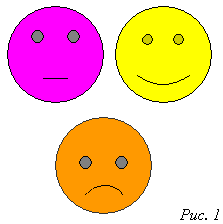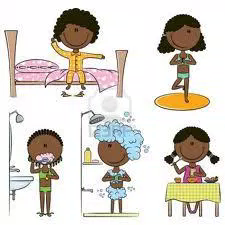Long-term plan unit: 5
"Путешествие"
Тема урока: "Это дорога"
School:
Date:
Teacher name: Алимжанова Камила Калкамановна
CLASS: 1
Number present:
absent:
Theme of the lesson: This is the way …
Learning objectives(s) that this lesson is contributing to
1.S3 pronounce basic words and expressions intelligibly
1.R3 recognise some very high frequency words from local environment
1.S5 produce words in response to basic prompts
1.UE9 use basic present simple forms [positive and negative] to give basic personal information
1.L2 recognise with considerable support a few basic personal questions spoken slowly and distinctly
Lesson objectives
All learners will be able to:
- Recognize simple greetings
- Listen to the song
- Recognize simple verbs of daily riutines
- Demonstrate and name the actions
- Give some information about themselves using covered verbs
Success criteria
- Learners have met this learning objective R3, if they can choose 8 -10 words from local context
Value links
- Cooperation Respect
Cross curricular links
- PE Art
ICT skills
- Smart board
Previous learning
Getting to school
Plan
Planned timings
Planned activities (replace the notes below with your planned activities)
Resources
Beginning
Good morning children! I’m glad to see you! How are you?
Now, Boys and Girls come up to the blackboard and put a tick.
WARM UP ACTIVITY
Learners listen, perform gestures and sing along to “This is the way” song.
Today we’re going to talk about your daily routine. What do you do every day?
This is the way we go to school song
http://www.youtube.com/watch?v=fsIb5L0_pGY
Middle
- Using vocabulary flashcards, Teacher models the vocabulary and have students repeat. Pupils play memory game to solidify the vocabulary.
- Teacher introduces the daily routines from the flashcards and drills correct pronunciation of each daily routine. T puts each flashcard on the blackboard and continues to review everything on the board and then add a new daily routine until everything has been introduced and drilled.
- Teacher points at the cards and students call out the vocabulary.
I brush my teeth.
I say ‘Goodbye’
I come home.
I wash my face.
I have breakfast.
I go to school.
I go to bed.
- Stop game: The teacher then says one daily routine over and over while running their finger over all the flashcards. When the teacher's finger is above the correct flashcards, the students have to cry out "stop" and the teacher turns the flashcard over. For extra fun, the teacher can go too quickly over the correct flashcard and make the students “lose”. When students say “stop” on the wrong flashcard, the teacher drills it again. Teacher continues until all flashcards are face down on the board.
- Teacher gives out the worksheet with the table and students draw the daily routines below the expressions (give them a very limited amount of time to do this).
- Teacher: We speak a lot today about all kinds of activities, and now I want you to speak about your working day, what you do. Please, let`s begin. Now, tell us what you do every day.
P 1: First I get up. Then I wash my face, brush my teeth. After that I have breakfast. Then I brush my hair. I say ‘Goodbye’ and go to school.
WRITING
- Follow up with a crossword for spelling or even short writing practice. Some crossword makers have pictures so you don't need to use written descriptions, but certain could.
BREAK
Let`s revise other verbs (Please stand up, Please dance, write, run, jump)
It’s time to do some useful exercises
- Hands up! Hands down! Hand on the hips! Sit down.
- Turn left. Turn right. Clap your hands. That’s right.
- Eyes up. Eyes down.
- Eyes to the left. Eyes to the right
- Shut your eyes
- Open your eyes widely
- Look at your right hand
- Look at your left hand
- Shake your head
ASSESSMENT
Pupils use a matching sheet with a few short sentences describing the item and have students circle the picture that corresponds to that description.
End
- How do you feel now?
- Are you OK ?
- Now, Boys and Girls come up to the blackboard and put a tick.
GIVING HOME TASK
Teacher: And now, at the end of the lesson, write down your home task- to write 5-6 sentences about your working day. Is it clear? O.K!
EVALUATING
Let`s count your stars, how many have you got? Who is the best today at our lesson. You are all the best today. You work hard and you do your best to be the best!
Additional information
Differentiation – how do you plan to give more support? How do you plan to challenge the more able learners?
Assessment – how are you planning to check learners’ learning?
Health and safety check
ICT links
• More support will be given to weaker learners by giving them a modified worksheets in some tasks with greater support
- through questioning and the redirecting of questioning
- Through formative assessment
• Through observation of the stage of revision
• Health promoting techniques
• Breaks and physical activities used.
• Points from Safety rules used at this lesson.
• Use video 10 minutes
Reflection
Were the lesson objectives/learning objectives realistic?
What did the learners learn today?
What was the learning atmosphere like?
Did my planned differentiation work well?
Did I stick to timings? What changes did I make from my plan and why?
Use the space below to reflect on your lesson. Answer the most relevant questions from the box on the left about your lesson.
Summary evaluation
What two things went really well (consider both teaching and learning)?
1:
2:
What two things would have improved the lesson (consider both teaching and learning)?
1:
2:
What have I learned from this lesson about the class or individuals that will inform my next lesson?


















